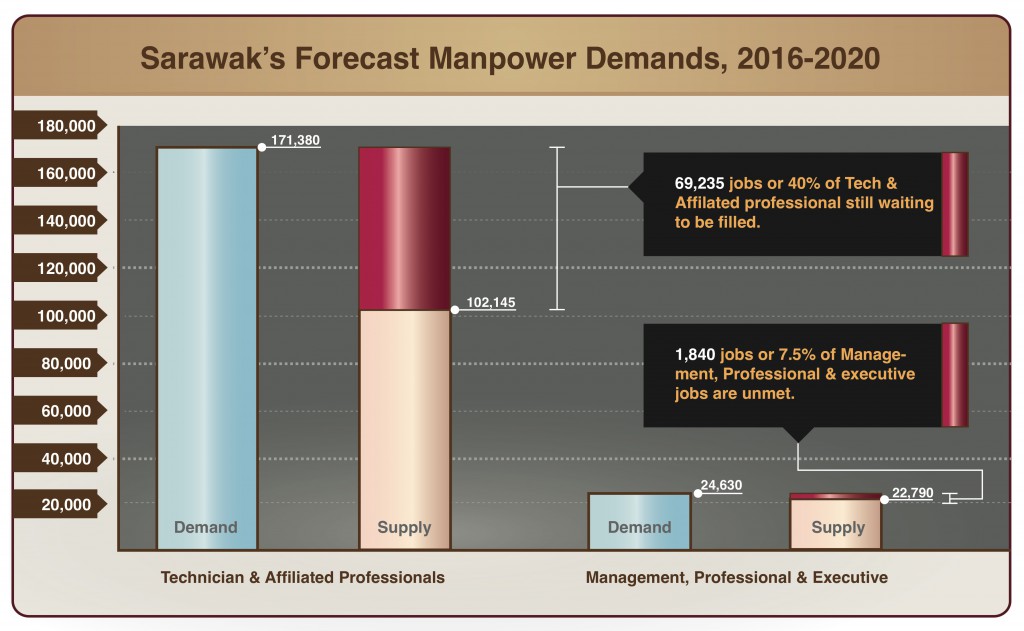Technical and vocational career opportunities in Sarawak are booming.
Not only is this great news for the future development of Sarawak, it’s also great news for young Sarawakians, who are planning their future career.
Technical and vocational careers are now widely considered a first choice for many young people, and the reasons are obvious: they offer a wide choice of skills to learn, and the salaries are attractive.
Bottom line: bright job prospects over the longer-term, and financial security.
As industries continue to expand along the Sarawak Corridor of Renewable Energy (SCORE), demand for skilled workers continues to grow. The challenge now is to ensure there are enough qualified people to fill the number of rapidly growing vacancies.
Minister of Industrial Development Datuk Amar Awang Tengah Ali Hasan recently said that according to a 2010 study by Universiti Malaysia Sarawak, the state needs to produce 40,000 certificate holders annually to meet the job demands for SCORE projects alone.
SCORE has been a boon for Sarawak, leading to significant corporate investment and even attracting industries that previously never existed in the state before. Multinational companies have also been wooed by the benefits offered by SCORE, encouraging them to establish operations in Sarawak for the first time, such as Tokuyama and Sakura Ferroalloys.
With technical and vocational jobs providing an opportunity to earn an attractive salary while learning new skills, SCORE offers Sarawakians a unique chance to kick-start their career in fields where certain skills are in high demand such as electrical engineering, mechanics, and welding.
The future for those willing to accept the challenge looks bright.
Government data reveals how significant the demand-supply gaps are projected to be for some technical and vocational professions through to 2020.
When you look at specific professions, enormous opportunities are forecast over the next five years alone. The most significant demand will be in the fields of mechanical, welding, tourism, electrical/electronics, and forestry.
While the state government has been making a strong push to promote technical and vocational training to ensure there is sufficiently trained Sarawakians to meet demand, support is also needed from another source.
“Parents’ support is vital to encourage their children to pick up technical education and vocational and technical field is no more a second class sector because many people have succeeded in this technical area with high income,” Advanced Technology Training Centre (Adtec) Bintulu director Dr Ramli Rashidi, said recently in The Borneo Post.
He added the technical sector is now considered a first class profession due to the need for highly skilled workers, but conceded the perception around this area still needed improving.
For young Sarawakians still searching for their future career, technical and vocational careers offer a golden opportunity, with long-term demand for such skills projected. With attractive salaries also on offer, there is no reason why these sectors should be still considered second-class.
As Sarawak continues to develop, it will be people with these exact skills who will be critical in moving the state forward.
* This article first appeared in The Borneo Post (www.theborneopost.com)



